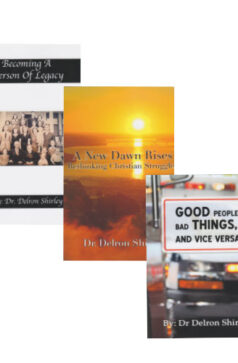Let’s revisit the analogy of the furnace again – this time with a more focused interest on what actually happens inside the furnace itself.
After moving from the sunny Carolinas to the cold, northern regions of Indiana, my wife and I decided that we wanted a fireplace in our home. The fireplace we purchased was highly engineered with the best technology to overcome all the problems that you have with regular fireplaces. A regular fireplace will actually cool the room rather than heat. The burning wood consumes oxygen, so it pulls air out of the room into the fireplace. When the wood is burning, the hot air goes up the chimney. Therefore, there is a constant draft of cold air out of the room flowing into the fireplace to burn the wood while the hot air goes out the chimney. In fact, winged-back chairs were invented so that people could be shielded from the flow of cold air while sitting in front of the fire. To prevent this chilling draft, our fireplace had a glass door to keep the air in the room from being drawn into the fireplace. Instead of being supplied with oxygen from the room, this unit had ducts that ran outside the house and pulled in external air. It also had vents on the side and little fans to blow the hot air out of the fireplace back in the room. Around the chimney were heat coils to capture the heat before it escaped up the chimney. The coils then warmed air, which was blown through the vents into the house. In theory, this highly technological system was going to give us all kinds of wonderful heat just by throwing a few logs onto the fire.
The fireplace was finished in October, and we really looked forward to the bitter cold winter nights ahead when we were going to sit in front of our fireplace and roast away with our new heating system. The only problem was that we had to get some wood. When we found some trees that had just been chopped down, I cut them up into fire-size logs and stacked them up next to our back door. However, because the wood was not cured, we never did get a decent fire that winter, just smoldering little excuses for fires!
After thinking about that situation, I began to realize that your life and mine have the same three characteristics of that fireplace experience – the fire, the fuel, and the furnace.
The Fuel
The fuel represents the facts that we are fed. We have to have the facts of the Word of God. Some people never get any facts or any teaching at all. They will never have any fire because they don’t have any facts to ignite. You could have that beautiful fireplace but if you never put a log in it, it will never give off heat. We have to have training and teaching. Those who don’t have the facts cannot be on fire for God because they don’t have any training.
My people are destroyed for lack of knowledge. (Hosea 4:6)
There are other people who get faulty teaching. Some think they are saved just because they are good people. They think that God grades on a curve – if you are good enough, you will make it in. That is a faulty idea, and it is not good fuel. You can’t start a fire of faith on notions like that. Some believe in universal salvation. They believe that everybody is going to be saved. That is another faulty concept and it will not produce any kind of heat for the kingdom of God. There are some who believe that healing is not for today. Others believe that the moving of the Holy Spirit is history or that the time of miracles is past. There are people who believe in eternal security – join the church, shake the pastor’s hand, and then live any way you want to because “once you’re saved, you’re saved.” That is in error, and you can’t build a good fire on it. There are some people who believe that you have to sin a little bit every day. But the Bible says, “Be ye perfect.” There are some people who believe that poverty is a blessing from God. They have an aversion to prosperity because they believe that God wants them poor. Some people believe in a social gospel – if you do enough to help the poor and outcasts and do enough good deeds, you will merit salvation. That is faulty reasoning, and you can’t build a fire with it.
One of Mother Teresa’s books relates the story of a patient in her hospital who had cancerous growths all over his body. When Mother Teresa tried to comfort him, “Sir, just envision these cancers as kisses from Jesus,” the beggar showed that he was smarter than she was because he looked back at her and said, “Mother, would you please ask Jesus to stop kissing me.” Mother Teresa was probably one of the greatest women of God to ever live, but even she was not immune to faulty theology.
Every time a certain missionary couple went to Sri Lanka, they came home sick with some tropical disease. Even when they came home feeling well, they would go to a tropical diseases specialist to get checked out because of their fear of getting sick. They had faulty information that told them they had to get sick because they were “suffering for Jesus.” One day I sat across the table from them in a local restaurant and told them that they didn’t have to subject themselves to being sick every time they went to the mission field. I explained that the “strong man” could be bound, and they could go into his territory and take a plunder. I saw the Ford “Better Idea” Light Bulb come on and begin to radiate in their faces when they all of a sudden caught on to the truth. The next time they came home from the mission field, their doctor examined them and said, “Not only are you perfectly healthy, but you are stronger now than before you left.”
Faulty teaching is like wet logs. You might get a few little flames, but you won’t get any heat. People who have faulty ideas may love Jesus, but their poverty, their depression, their sickness, and their submission to sin will keep them from becoming real witnesses. Their lives will not be testimonies. Jesus condemned the churches that had faulty theology. In Revelation 2:14, He accused the church at Pergamos of following Balaam’s doctrine. In Revelation 2:20, He lambasted the congregation at Thyatira for following Jezebel’s doctrines. Paul was constantly correcting his churches when they got into doctrinal errors. He corrected them because their wet logs kept them from having a living, fiery faith. He said that the church in Galatia was entangled in a yoke of bondage. He wrote to the church in Corinth about allowing immorality among their members, a wrong conception of the resurrection, a misunderstanding of communion, and a misguided use of the gifts of the Holy Spirit. To the church at Colosse, he said, You have become subject to elemental spirits.
The Fire
The fire represents our faith. Even with good fuel, you won’t get any heat unless you put a flame to it.
Toward the end of one winter, I had piled some logs into the fireplace; but the cold weather broke, so I just left the logs in the fireplace. It didn’t get cold again that winter, so those same logs sat in the fireplace all spring, throughout the summer, and into the fall. Until I put a match to those logs, we didn’t get a fire. We can have the right facts, but until you put some fire on those facts, you won’t get any heat. You can have good fuel, but, without the fire of faith, it won’t produce anything.
The book of Hebrews talks about the Israelites who came out of Egypt but failed to enter into the Promise Land. They had the Word; but because they didn’t put their faith to it, it was useless.
The word preached did not profit them, not being mixed with faith in them that heard it. (Hebrews 4:2)
You could have a mountain of coal or a tanker full of oil, but, until you strike a match, you don’t have any fire. Faith is the human spirit’s “Amen” to the facts of God. When we add faith to the facts, we begin to produce a fire.
In Mark chapter four, Jesus tells us the story about the sower who went out to sow good seed. It was good fuel. Some of the seed fell on the hard ground, and it produced nothing. He threw seed into another place, but, because it landed among the thistles, it grew up a little bit but was soon choked out. Some fell on the stony ground where it didn’t have much soil, so it only grew a little bit and then withered away. But the seed that fell on the good ground was able to grow and mature and produce a harvest of thirty-, sixty-, and one-hundred-fold.
We can have the good facts in our lives, but, until they get in contact with good faith, they won’t produce any heat. However, we also need to be very careful about the kind of fire that we bring into contact with our fuel.
Nadad and Abihu who offered “strange fire” to God. (Leviticus 10:1) The result was that God burned them up. You can have the correct facts but have a strange interpretation and a strange kind of faith. There are people who do strange things with good information. You can have a good, solid teaching, but put a wrong interpretation on it. God won’t accept strange fire. It has to be faith that is in the true Word of God.
Peter warmed himself by his enemy’s fire, and it caused him to deny the Lord. On the night Jesus was arrested, he followed the soldiers to Caiaphas’ house where they took Jesus for the mock trial. There was a little fire that Caiaphas’ servants had built, so Peter stood next to it to warm himself. When he got next to somebody else’s faith, he began to think and act like them. He even cursed to try to emphasize the fact that he didn’t know Jesus. He was standing next to strange fire, and that other person’s faith began to motivate him. We have to be careful that we don’t offer strange fire and that we don’t get around the enemy’s fire. (John 18:25-27)
Our God Himself is a consuming fire. (Hebrews 12:29) He is a God of faith, and He makes His messengers into flames of fire. (Hebrews 1:7) We want to have God-quality fire, the fire that is of the nature of God that He pours into us. When Elijah challenged the prophets of Baal on Mount Carmel, God proved Himself by sending fire down from heaven. The false prophets could not produce fire because fire comes from God. They could not produce faith because they didn’t know the God of faith.
God is a God of fire. When He asked for a sacrifice, He wanted it presented to Him by fire. He appeared to Moses as a burning bush. He appeared to the people of Israel as a pillar of smoke by day and a pillar of fire by night. He appeared to Ezekiel with fire from His loins upward and fire from His loins downward. (Ezekiel 1:27)
The Lord Jesus rebuked the Ephesian church because they had lost their first love and the fire that they once had. (Revelation 2:4) He looked at the Laodician church and said their fire had gone out – they were only lukewarm. (Revelation 3:15) We can’t settle for strange fire, and we can’t warm ourselves by the enemy’s fire; we need the fire that is characteristic of the personality of God Himself – the consuming fire.
The fire of God is not like some magical characteristic of a superhero that we humans observe from afar and “oooh” and “aaah” over, like a Fourth of July firework display. Rather, the fire of God is intended to intimately affect us and permeate every aspect of our lives and ministries. One cigarette company used to advertise its products as having flavor that penetrated over, under, around, and through the tobacco. In the same way, God’s purpose is that His people would experience His fire over, under, around, and through their lives.
On the day of Pentecost, miraculous cloven tongues of fire suddenly appeared over the heads of all who were gathered in the Upper Room. (Acts 2:3) This was the fire of God over them to improve them. Just think for a moment who it was that comprised that crowd of one hundred and twenty individuals. Most notable were the eleven disciples who, just a few days prior, had fled in terror when the angry mob appeared to arrest Jesus, abandoning Him to the bloodthirsty crowd and the murderous priestly court. Peter, their most ardent spokesman, had boasted that he would die before he would allow any harm to come to the Master; yet, he not only fled from the scene – he denied three times that he even knew Him and even added a few choice swear words to emphasize his statements. Not only were they cowards, deserters, and – in the case of Peter – an empty braggart and a traitor, they were also selfish sluggards who repeatedly fell asleep when their friend depended on them for moral and spiritual support as He struggled through His agonizing prayer in Gethsemane. Additionally, they were fearful unbelievers who hid behind locked doors and rebuffed those who came with reports of the Lord’s resurrection. But now that they had been touched by the fire of God that hovered over them, they were improved! Suddenly, they were supercharged with a new boldness that propelled them fearlessly around the world into the most hostile situations to proclaim the message of the One whom they had so readily denied. Peter, the one who had run fastest and hardest, now stood up and publicly proclaimed to the crowd gathered on that Pentecost Sunday that they were guilty of killing Jesus. He unabashedly accused them of bloodguilt and demanded their repentance. What a transformation had taken place in him! The fire of God over him, improved him.
Malachi, the prophet who rounded out the Old Testament, addressed the issue of a fire that God can set under His people to remove any harmful and unwanted elements. In verse two of chapter three, Malachi talked to us about the fire that a refiner uses to purify his metal. After placing the ore in a crucible, the refiner heats the apparatus until the ore is white hot – almost transparent – in the flames. As the temperature rises, many of the impurities reach the point of spontaneous combustion and burst into flames and evaporate before the refiner’s eyes. Other impurities simply float to the top where the metallurgist can skim them off with his spatula. This fire of God under us is a purifying fire that is intended to remove any and all ungodly thoughts, attitudes, and actions out of our lives.
When John the Baptist pronounced the coming of Jesus as the Messiah, he added that although his personal ministry was one of baptizing in water, Jesus would baptize with the Holy Ghost and fire. A rather traditional Pentecostal interpretation of the concept of the baptism of fire has been a super-duper anointing which enables the believer to run around the church, jump the pews, and shout loudly; however, even a cursory look at the context of the passages reveals that this simply is not what John was talking about. The Baptist goes on to explain, Whose fan is in his hand, and he will thoroughly purge his floor, and gather his wheat into the garner; but he will burn up the chaff with unquenchable fire. (Matthew 3:12) The baptism refers directly to the practice of burning the useless chaff once it has been separated from the edible grain, a purifying very similar in nature to the refiner’s fire.
Isaiah experienced this cleansing fire when he first began to make excuses to avoid the call God had placed upon his life. When he argued with God that he could not speak on His behalf since he was a man of unclean lips, a seraph touched his lips with a white-hot coal from the fire upon the altar of God. The result was instantaneous. Immediately, the prophet responded, Here I am. Send me – the result of a purifying touch from the fire of God. (Isaiah 6:8)
The tobacco commercial goes on to speak of “around.” Likewise, the Lord is a fire that is around His people to prove that they are actually His people. By the time he had spent forty years tending sheep in the desert, Moses had likely lost all sense of self-worth. Having once stood at that lonely place at the top of the socio-economic pyramid as a member of the royal family of the most powerful nation on the face of Planet Earth, he undoubtedly walked, talked, and carried himself with an air of importance and significance. But by now, any sense of importance was simply a dusty memory. But then something unusual happened to this desert shepherd; he noticed a burning bush. Unlike anything he had ever seen before, this bush continued to crackle as the flames leapt from each branch and twig; but nothing seemed to be consumed by the blaze. As he stepped forward to examine this anomaly, Moses suddenly realized that – like Alice and her magical looking glass, and the children in their mysterious wardrobe of the Chronicles of Narnia – he had suddenly stepped through a “dimension wall” into a new reality. This fire, which consumes yet doesn’t destroy, is a God quality that identifies His own and sets them apart from others as a whole new breed. After his encounter with this unusual fire and the God who spoke through it, Moses – for the first time in four decades – felt significant again. At long last, he felt as if he really could be the deliverer he had tried to become so many years ago. This unusual fire assured him that he was indeed God’s man and gave him a new spiritual stamina that made others take note of him. Acts 4:13 records what must have been a touch of that same fire, Now when they saw the boldness of Peter and John, and perceived that they were unlearned and ignorant men, they marvelled; and they took knowledge of them, that they had been with Jesus.
The last preposition applied to the fabled tobacco is “through.” God also sends His fire through believers to move them. When Jeremiah decided that he couldn’t take the heat that society was putting on him as he prophesied their impending doom, he became so discouraged that he stepped outside his office and pulled down his shingle, “Jeremiah, prophet of God.” The record of his testimony reads,
Then I said, I will not make mention of him, nor speak any more in his name. But his word was in mine heart as a burning fire shut up in my bones, and I was weary with forbearing, and I could not stay. (Jeremiah 20:9)
The factor he hadn’t calculated in the equation when he resigned his position as God’s spokesman was the fire that was racing through his insides. Like it did in the life of the prophet, that fire of God inside us also moves us to operate in the divine unction of God to impact our world.
The fire inside is the anointing and operation of the gifts of the Spirit, which enable us to move in the power of God in this physical world. Unfortunately, many of us have felt that this fire should be reserved only for use within the walls of our church buildings. To the contrary, the book of Acts records that the fire inside the apostles burned fiercely, no matter where they were. As Peter strolled down a street, people were healed just by contact with his shadow. (Acts 5:15) Paul stirred up demons simply by walking through town. (Acts 16:16-18) A rather humorous example from my own experience, was the day we met a lady on an elevator in a beachfront hotel. For some reason, she mentioned that she was having a terrible headache, and my wife leaned over to her with an assuring word that Jesus was willing to heal her. About that time, the door opened and we stepped out to head for the beach. A few minutes later, we heard a shout from the fifth floor as the woman realized that her pain was totally gone! It doesn’t matter if you are in your sandals and bathing suit; if the fire of God is surging through your insides, it will move you to act on His behalf any time and any place. That fire can flare up like the saying on the old TV show Candid Camera, “When you least expect it.”
What is probably the most startling truth that God wants us to know about His fire is that His ultimate intent is to actually transform us into that fire. According to Psalm 104:4 and Hebrews 1:7, it is His plan to make His ministers into flames of fire. He is not willing to settle for ministers who have experienced fire, but ones who are actually the fire themselves. Too long we have settled for, “Lord, send the fire,” or “Lord, let me experience the fire.” God is expecting us to pray, “Lord, make me a fire.” God is looking for more than just what happens to us, on us, or through us; He desires that His fire characterize our whole lives and personalities. We cannot settle for being carriers of the fire, lest we lose it. Nor can we be satisfied to be on fire, lest we burn up. We need to be transformed into the fire itself because there is no limit to what God will do in, through, and for us when we become fire.
In the story of Elijah on Mount Carmel in I Kings chapter eighteen, note the reaction of the people when the prophet initially challenged them to decide between Jehovah and Baal – they answered him nothing. In other words, they were not moved or motivated by his ministry or challenge. Next, notice how the entire congregation fell on their faces and cried out, The Lord, he is the God. The Lord, he is the God, when they encountered the fire. (verse 39) If we want God to be manifest in our world, it will only happen when His fire is demonstrable and demonstrated through us.
The Furnace
The furnace represents us. The fuel is the knowledge that we get from God, and the fire represents the faith, but the furnace represents you and me. The furnace is the tool that takes the fire and the fuel and converts them into usable energy. There is energy in both the fuel and the fire, but without the furnace it is ineffective. This is what James was talking about when he said, Faith without works is dead. (James 2:20)
There is a way of converting the energy that is inside the fuel and the fire to make it effective. Fuel on fire in the furnace can heat a building, run a car, drive a motor, or generate electricity. But if you have the fuel on fire outside the furnace, it will burn up the house, destroy that engine, and demolish the generator. The fuel on fire inside the furnace harnesses that energy and causes it to be constructive and to do something for God. Without a furnace, fire produces chaos and destruction.
God gives us the fire – faith as a free gift.
For by grace are ye saved through faith; and that not of yourselves: it is the gift of God: Not of works, lest any man should boast. (Ephesians 2:8-9)
He also gives us the Word of knowledge as a free gift. In the parable of the sower, Jesus said that it was God who sowed the Word.
He sent his word, and healed them, and delivered them from their destructions. (Psalm 107:20)
So shall my word be that goeth forth out of my mouth: it shall not return unto me void, but it shall accomplish that which I please, and it shall prosper in the thing whereto I sent it. (Isaiah 55:11)
But we have to provide the furnace. Probably one of the saddest verses in the Bible is Ezekiel 22:30 where God said, And I sought for a man among them, that should make up the hedge, and stand in the gap before me for the land, that I should not destroy it: but I found none.
God didn’t just look; He diligently searched throughout all the world. But He found no one who cared. God has given the fire and the fuel, but we have to provide the furnace. In Isaiah 6:8, God said, Whom shall I send and who will go for us? Shaken by that event, Isaiah said, Here am I, send me. At first, he felt inadequate, but finally he answered that call after he was willing to have his mouth cleansed.
God has been looking for a furnace, but we have to submit ourselves to becoming the furnace.
If my people, which are called by my name, shall humble themselves, and pray, and seek my face, and turn from their wicked ways; then will I hear from heaven, and will forgive their sin, and will heal their land. (II Chronicles 7:14)
We have to be the ones who submit ourselves to become the furnace. The fire is our faith that God supplies inside our spirit man. The fuel is made of the facts that God supplies for us to put in our soulical man. The furnace is our physical man that houses our spirit and soul here on earth and we must submit our physical man (our bodies) to God.
Even if we have the right knowledge and the right equipping, it will prove nothing until we also have the anointing and the faith that sets it on fire. No matter how much faith we have, if we have faulty information, we get a flimsy fire. No matter how much good information we have, if we have no faith, we will get no fire. With good information and good faith, but no furnace, we get destruction. We are the conduits through which God intends to channel the fire of God and the fuel of God in a constructive flow. We need to submit ourselves to God – be filled with the fire, be filled with the fuel, and provide a furnace so that we can release a changing force into our world today.










